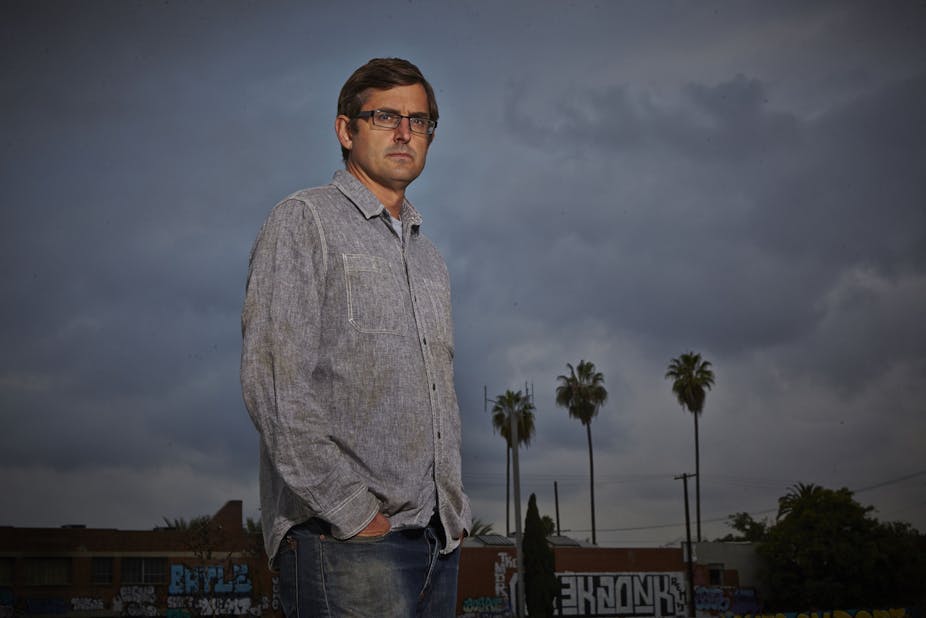Louis Theroux knows how to entertain; but the lessons he teaches us have much greater import.
The British journalist and broadcaster is back on TV – at least in the UK, for now – with his new series LA Stories. His previous series Weird Weekends (1998-2000), When Louis Met … (2000-2002), BBC2 Specials (2003-2011) and Extreme Love (2012) will be familiar to many viewers. As a researcher of human experiences, I have long been intrigued by the range of social issues, personalities, unusual angles and world-views sensitively presented in these documentaries.
Theroux humanises controversial, stigmatised or poorly understood social issues; and good social researchers could learn a great deal from this – not least in an era in which there’s an ongoing quest to justify the “value” of public funding of social research.
Perhaps the two main elements we can take from Theroux’s approach as a writer and filmmaker are unusuality and humour.
Anyone familiar with Theroux’s work will recall many weird and wonderful moments. Unusual angles on sometimes controversial subcultures and movements in the US, Britain and Asia provide the kind of insight that can only be gleaned through improvised and spontaneous situations.
Drawing upon influences such as American documentary-maker Michael Moore, there is an element of satire and irony in most of his work. But behind the humour are serious issues, such as gambling, the hypnosis business and the treatment of “dangerous” animals as pets.
In common, journalists and social researchers seek to uncover “the truth”. But everyone has their own truth, their own construction of life and their own world-view – a reality reflected in Theroux’s 2006 book The Call of the Weird:
On the list of qualities necessary to humans trying to make our way through life, truth scores fairly low. Why do people believe and do weird things? Because in the end, being alive is more important than telling the truth. […] We are all in a way fictional characters who write ourselves with our beliefs.
In social research, the method of “triangulation” is used to develop trustworthiness, meaning the researcher examines an issue from a variety of perspectives. The combination of verbal, written and visual storytelling aspects of a presentation brings issues to life. We can see how people live in their natural worlds through “everyday” dialogue in personal spaces such as their homes, workplaces and special sites.
With Theroux, the audience becomes a participant rather than consumer of the story.
As he amply demonstrates – whether presenting an infomercial or being a rapper – there is no single “authoritative” stance. Instead, he reveals his own personal limitations and vulnerabilities so the viewer can relate to him as a human being and build trust.
The Extreme Love films – which aired in 2012 – about people living with dementia and autism, show Theroux at his most emotionally engaging. Those documentaries have helped inspire researchers and people affected by these conditions, while helping change public perceptions and develop new ways of dealing with them.
The touching scenes where Louis meets Nancy Vaughan, a 90-year-old woman living with dementia and cared for at home by her husband, involved empathic dialogue. Through these scenes we also experience what it’s like being a carer as Nancy’s husband leaves her for a short while to “look after Louis”.
Nancy: (in response to the idea of being placed in an institution) “Everyone’s a nut.”
Theroux: “I know the feeling.”
Nancy: “Thank you, sir.”
The real value of social research lies in promoting understanding of different cultures and ways of being, creating social change to eliminate social stigma and discrimination, and reflecting on the fundamentals of human nature.
If we can “humanise” our work – a la Theroux – there is potential to have far greater reach and impact.

